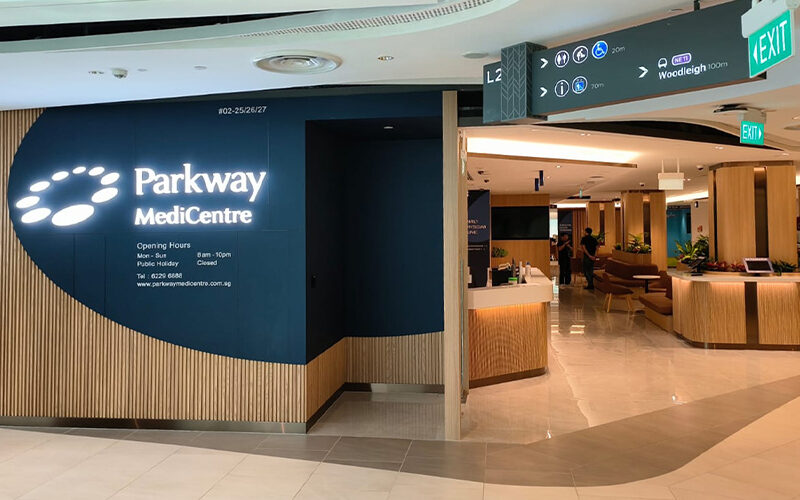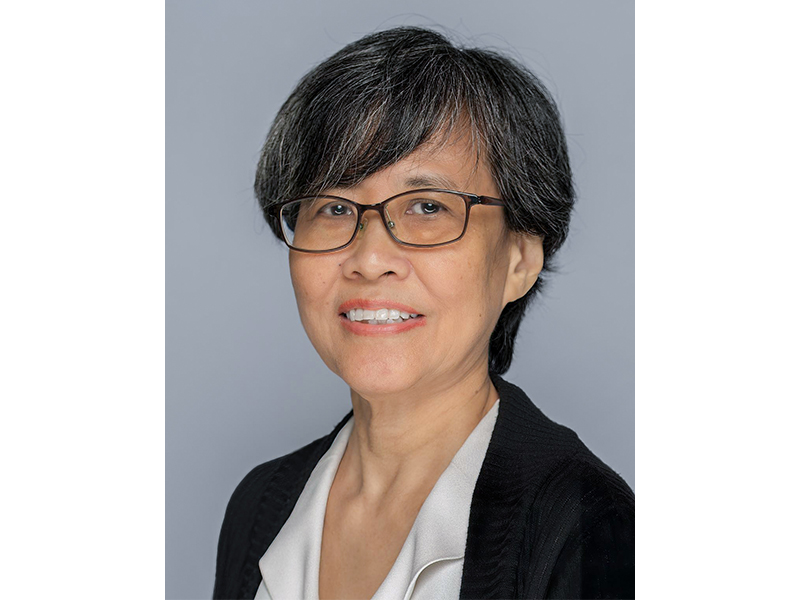With year-round humidity, school bugs and the odd haze week, parents here juggle colds, flu, HFMD and allergies on repeat. DR KAO PAO-TANG and DR AGNES TAY from the International Baby Child & Adolescent Clinic (IBCA), a paediatric clinic at Parkway MediCentre, share their views on what to keep at home, and how to ride out the usual bugs with less stress and more sleep – plus a few signs it’s time to take your child to a paediatrician in Singapore.
Dr Kao Pao-Tang and Dr Agnes Tay on navigating common childhood illnesses

Medicine cabinet essentials
Keep a digital thermometer; age-appropriate pain and fever relief (paracetamol, and ibuprofen if your doctor says it’s suitable); oral rehydration salts; saline spray or drops; and a small supply of antihistamines recommended for known allergies.
Store everything locked away, labelled, dated and out of sight of young children. “Check expiry dates at the start of each school term,” says Dr Kao. “Get rid of any old bottles so you aren’t guessing at 2am.”
Dose safely – read the label every time
“When it comes to medication, your best safety tool is the label,” says Dr Kao, who specialises in paediatric urgent care and trauma cases. “Check the active ingredient, the child’s weight-based dose, and the dosing interval. And use the syringe or dosing cup that comes with the medicine – kitchen spoons aren’t accurate.”
As a paediatrician in Singapore he sees a common pitfall: doubling up on the same ingredient across different brands (for example, two syrups that both contain paracetamol). When in doubt, bring the bottles to your paediatric clinic and ask.
Another tip from Dr Kao: Keep a simple dosing card with your child’s current weight and doses taped inside the medicine cabinet, and pair a syringe with each syrup so you aren’t hunting for one at night.

Bugs, haze and allergies
While “winter bugs” don’t exist on the equator, schools still see waves of colds, flu and HFMD – plus allergic rhinitis from dust mites or pollen bursts and haze weeks that irritate noses and throats. So, prevention matters year-round.
Prevention first: “Think of immunity like a daily routine, not a one-off,” says Dr Agnes Tay. Sleep is the foundation (aim for age appropriate hours), followed by nutrient dense meals, outdoor play and hand hygiene.
Vaccination: “An annual flu shot lowers the risk of severe illness (and missed school) for the whole household,” says Dr Tay. In Singapore, she adds, flu circulates year-round with two common peaks (roughly May to August and December to March), and the vaccine takes about two weeks to work, so aim to vaccinate a little before those peaks – think April and late October/November – or at least two weeks before travel. Dr Tay also says that the HPV vaccine is for boys as well as girls, typically given between ages 9 to 14. Ask your paediatrician about the schedule and timing for your child.
Allergies: Dr Tay recommends simple habits: a quick saline rinse after school or outdoor play to clear allergens; showers and a change of clothes after sweaty park time or haze exposure; and bedroom basics – doors closed, damp-dust, regular vacuum and mop, and weekly hot washes for bedding (60°C or above). If dust mites are a trigger, use mattress and pillow protectors and limit soft toys, or wash or freeze them weekly.

Treat at home… or see a paediatrician in Singapore?
Most viral colds can be managed with rest, fluids and comfort care. Seek medical advice promptly for babies under three months with fever, if fever lasts more than 48 to 72 hours, if breathing is laboured, if your child is unusually drowsy or in severe pain, or if hydration is poor. “Parents know their child’s baseline,” Dr Kao adds. “A sudden change in behaviour or breathing trumps any internet list.”
When to see a paediatric specialist at IBCA Clinic
Some situations call for a paediatrician in Singapore. “Any fever in a baby under three months, hard or noisy breathing, signs of dehydration, unusual sleepiness, or pain that won’t settle should be assessed the same day,” says Dr Kao.
Longer-running issues are another cue. “If symptoms keep bouncing back or start to affect sleep, growth or school – think recurrent wheeze, a cough that lingers, repeated ear or sinus infections, poorly controlled eczema, or suspected food allergy – come for a specialist plan,” adds Dr Tay. A paediatrician can also map out longer term care such as asthma action plans, allergy testing, and when blood tests or imaging are useful.
Teleconsult options are available at IBCA Clinic at Parkway MediCentre, so you can get advice and follow-up care from home with a paediatrician in Singapore.

Ready, Set, Settle: Five Smart Steps
#1 Audit the meds: bin any expired bottles and store the rest out of reach.
#2 Pair a syringe with every syrup; label with your child’s name.
#3 Save your clinic’s number and an after-hours option in your phone favourites.
#4 Prep a bedside sick kit: thermometer, tissues, pain relief, water, saline and spare PJs.
#5 Agree on a bedside plan with your partner (e.g., who checks the temperature and who logs doses).
IBCA Clinic @ Parkway MediCentre
#02-25/26/27 The Woodleigh Mall, 11 Bidadari Park Drive
WhatsApp 9730 2799 | 6229 6880 | parkwaymedicentre.com.sg/paediatric
This article on when to see a paediatrician in Singapore or treat at home first appeared in the November 2025 edition of Expat Living. You can purchase the latest issue or subscribe so you never miss a copy!
To make the most of living in Singapore, read our latest City Guide here for free.
Liked this article on IBCA Clinic? Visit our Health & Fitness section for more.
Don't miss out on the latest events, news and
competitions by signing up to our newsletter!
By signing up, you'll receive our weekly newsletter and offers which you can update or unsubscribe to anytime.



